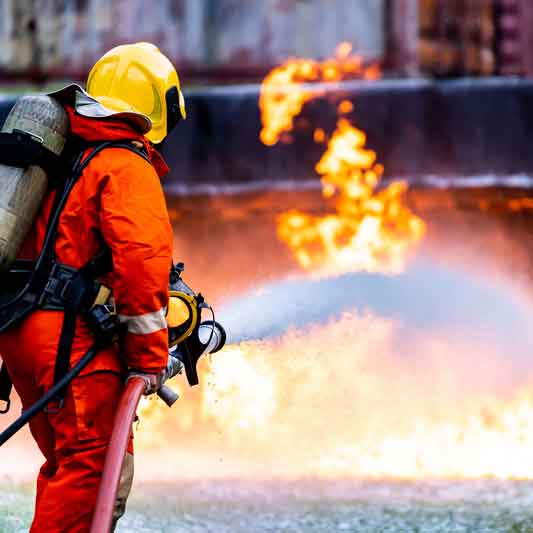A fuel tanker explosion in the northern Nigerian town of Majiya, Jigawa State, claimed at least 153 lives and left over 100 people injured. The tragic incident unfolded on the evening of October 15, 2024, when a fuel tanker lost control and tipped over on a major highway. Following the accident, locals swarmed the site to gather the leaking fuel that had flowed into a nearby drainage ditch.
Shiisu Lawan Adam, a representative for the Jigawa State police, explained the circumstances behind the disaster: “The driver lost control, and the tanker somersaulted and spilled fuel into a drainage ditch. As a result, residents rushed to scoop the fuel when the explosion happened.” It was reported that the tanker flipped while the driver was trying to avoid a collision with another truck.
In the aftermath of the explosion, mass burials started on October 16, continuing into the following day due to the high casualty count. The Nigerian medical association called upon doctors to provide support at local hospitals, which were overwhelmed with a surge of severely burned patients. Most of the injured were conveyed to nearby medical facilities in Ringim and Hadejia for emergency treatment.
Nigerian farmer Mustapha Majiya lost almost 50 members of his extended family in the fiery explosion. His nephews, Nuradeen Rabiu, 16, and Dini Babalo, 17, were among those killed. They had been trying to keep people away from the overturned tanker before the explosion, according to the 50-year-old resident of Majia town, who spoke to the BBC.
This incident is not unique in Nigeria, a country with a high incidence of fuel tanker accidents. Due to a lack of an efficient rail system, fuel and other goods are typically transported by road. In 2020, Nigeria saw more than 1,500 fuel tanker accidents, leading to 535 deaths and 1,142 injuries. Factors such as poor road conditions, reckless driving, and substandard vehicle maintenance often contribute to these accidents. Similar fatal incidents have occurred in recent months, including a deadly accident in Niger State that claimed at least 48 lives in September.
Nigeria’s ongoing economic crisis has led many citizens to take risks such as collecting spilled fuel, despite the inherent dangers. Gas prices have tripled since the government discontinued fuel subsidies last year, turning gasoline into a rare and precious commodity. With poverty widespread, many Nigerians resort to desperate measures to alleviate their financial hardships. Many of the victims in Majiya were trying to collect the spilled fuel either for personal use or for resale.
Nigeria’s Vice President Kashim Shettima expressed his condolences to the victims in a public statement on Wednesday. He acknowledged the severe impact of the tragedy on the affected families and the community at large. He also assured that the government is committed to helping Jigawa’s residents by providing necessary resources to support the injured and assist affected families.

